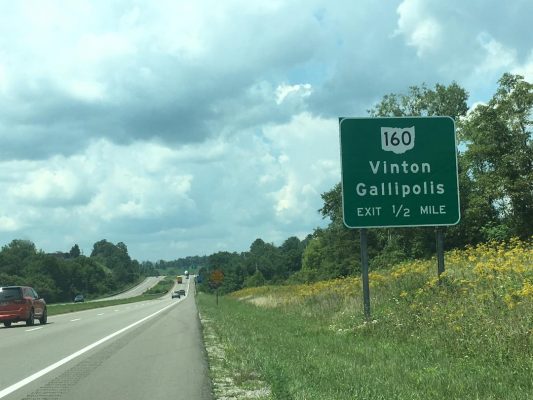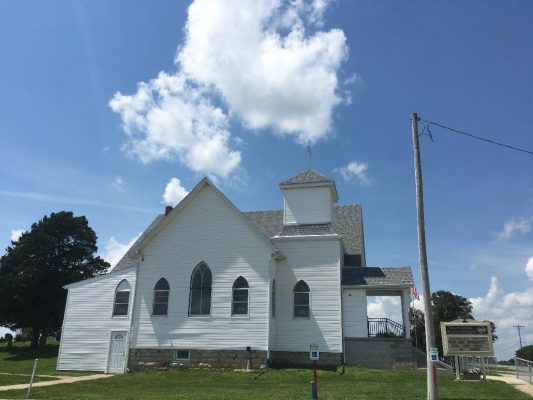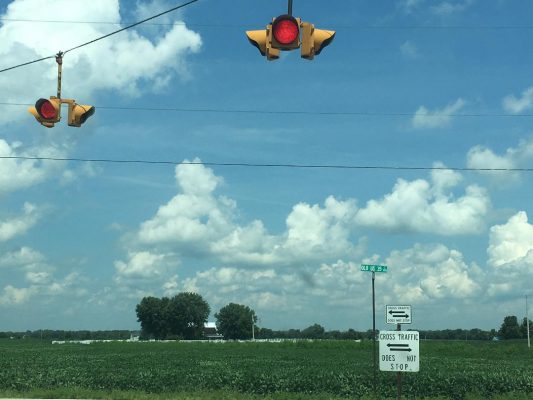Our national opiate-addiction epidemic is different from other American drug scourges for many reasons.
It’s the deadliest and the most widespread. It didn’t begin with drug mafias, but through the promotion of narcotic painkillers by pharmaceutical companies to doctors, who were pressured by we Americans, demanding an easy solution 
to our pain.
But the epidemic is also remarkable for whom it has forced to its frontlines.
Librarians make up one such group.
I’m in Ohio this week, speaking at four regional conferences of librarians around the state. Today was Gallipolis — pop. 3500, in rural Gallia County, along the quiet, majestic Ohio River.
I stayed after my talk to listen to a panel made up of a university librarian, an elementary school librarian, and a public librarian talking about their experiences with this epidemic.
We heard about needles in the bushes, about how a child who lives in a drug house smells, about calling 911 because a customer had overdosed in a bathroom, about the look of some people who come into the library high. The epidemic has made danger zones of innocuous public places.
One school librarian, I was told, suspects two girls at her school are being abused. They come to school smelling badly. She takes their clothes home and washes them.
I was also struck by the stories many in the audience (80 people or so) had to tell about addiction in their families. Several librarians were raising their addicted relatives’ children.
Librarians are also perfectly poised, though, to be great catalysts for change – community organizers in the fight against this plague. That’s what I believe. They have the spaces, the local trust and credibility, and often small towns need folks like librarians to bring them together — and this is happening.
As I said to the group I spoke to, who better than purveyors of the book to be the leaders in this fight.
Plus, librarians are looking for new roles to play – rebranding libraries as community centers, places where people can come together. This catastrophe is offering libraries and librarians that moment to reinvent themselves towns and counties.
In the afternoon, I drove through the pristine southern Ohio farmland – white houses, white churches, silver siloes, blue sky, and acres of green corn.
I stopped at the Dairy Queen in Washington Court House, another small town with a bunch of opiate addiction problems.
Tomorrow Dayton – then Findlay and, finally, Twinsburg.
Next week I speak in Weber County, Utah, and after that Brunswick County, North Carolina.
All frontlines in America’s epidemic of opiate addiction.




I stopped in the Public Library of Knox County in Mt. Vernon yesterday and while I was there an unkempt gentleman that looked fresh off the street sat down in one of the comfy chairs and before long dozed off. He stayed for quite a while before waking up, looking around in mild confusion and finally shuffled back out. This article was fresh on my mind and I appreciate you singing the praises of neighborhood heroes who are on the front lines and few people even realize it. Keep up the good work, Sam. We’re pulling for you.
thanks rick for taking the time to write!
Yes, this has been the case for a while and has gotten some press, eg https://www.cnn.com/2017/06/23/health/opioid-overdose-library-narcan/index.html. Take care, Sam!
Hi Sam .. I loved your book and was amazed to learn how this scourge on our Ohio communities started. I’ve also passed your book on to my physician husband who just recently took a part time job with a detox center in the hopes of helping the people suffering with these horrible addictions. Thank you for bringing this problem to light so we can all understand and help each other conquer this scourge on our families and our community.
thank you Tracy. Pass along my best wishes to your husband in his new job….sam
Yet another segment of the population becomes unsung heroes in this deadly war. What can we do? Sam, keep bringing these people’s stories to us and let us know what else we can do to help.
I’m from Ohio and it hurts to see all of these quaint, rural towns just implode with the loss of jobs, opiate addiction and feeling of hopelessness. Here in Sarasota, Florida, our librarians are dealing with a growing homeless population that spends days at the library because it’s safe and air conditioned. These people are heroes. Thanks for enlightening Americans as to what is really going on.
This is such important work. Thank you for what you are doing to help us all heal the deep wounds in the people of our country. We must all find ways to participate in this effort. You have led the way.
Thank you for this. In Boulder I have had discussions with the staff about getting trained on Narcon and stocking it. They have had multiple overdoses. For me it is a no brainer as homeless and others congregate in the library for internet and bad weather.
I do believe we need to train outside the box. Like Libraries and health food stores. Accross from the library is Alfalfa’s they have had 4 overdoses in their bathrooms. Lets get with it and train people average folk for signs and symptoms of overdose and narcon accessibility everywhere.
Home sweet home (actually on the other side of my favorite river). I miss it, but it will be a long time till it will be the same as I want to remember. Sam, thanks for what you do. You are a hero to many of us.